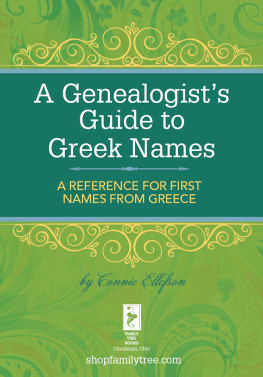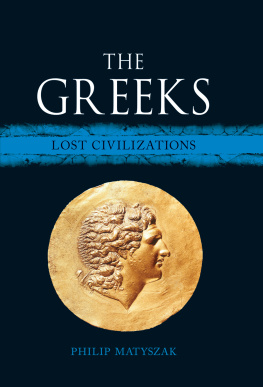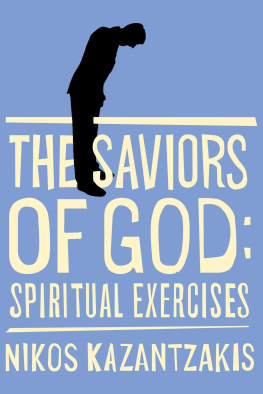WHAT PEOPLE ARE SAYING ABOUT
ON THE UNHAPPINESS OF BEING GREEK
A classic book a bitter path towards self-knowledge it examines with idiosyncratic sarcasm the subject of Modern Greek identity a truly patriotic book. Dimou places himself at the right distance from his subject observing Greeks as they truly are. Alexandros Stergiopoulos, Eleftherotypia Newspaper
Nikos Dimou had a different kind of unhappiness in mind when he wrote On the Unhappiness of Being Greek back in 1975 yet all the symptoms he described at the time contributed greatly towards Greeces present predicament. The mentality that was developed the national identity that was formed after the military dictatorship we are still suffering from the same symptoms and very soon we will find ourselves just as unhappy (as we were back in 1975).
Chrystalla Chatzidimitriou, O Fileleftheros Newspaper
The 30th edition of On the Unhappiness of Being Greek has just come out making this classic book a legend. There couldnt be a better time for this new edition. I grew up with this book. In fact we grew up together. I was a student when I first discovered it and now I am what they call a middle-aged man. The only difference between us is that, unlike myself, Nikos Dimous book of aphorisms having gone against time and change has remained the same.
One cause for unhappiness for us Greeks is that this book has continued to be just as current as it was when it was first published another cause for unhappiness is the way the book was received back then especially by certain so called experts. They didnt see it as it really was (small bitter lessons for those who love Greece and maintain the irrational hope that somehow miraculously it will be saved) but as the exact opposite: a book that lays blame for no reason at all (all blame is unreasonable in Greece, it goes without saying). Along with those experts appeared the demagogues as well. These people never read books, they just argue about the books they never read. For all those good patriots this book was deemed to be dangerous. In the 90s everything that went against their attitudes, which were propagated in all the controlled media, was naturally labelled as dangerous. It didnt help that Nikos Dimou was always in a peculiar black list because he had many flaws. First of all he was an advertising man and a successful one at that. Secondly, as his work has shown, he was never one to go with the flow of our nations typical ideologies. On the contrary he fought against them as much as he could. Even worse, he never barricaded himself behind a particular caste, group, union or leftish ideology group so to be able to take part in the game. He remained the sensitive man that he was, who insisted on voicing his own opinions, (which is the reason why he did not last long in most newspapers and magazines he worked for.) I owe this man a lot and this is the least I can do to thank him for his poems, photographs, newspaper and magazine columns, the breath of fresh air hes been in our lives for so many years now. And rather unfortunately his remains the freshest voice in todays free presses.
So now that the banners of the fight have been ripped apart, now that the allure of the great expectations of those propagating Greekness and anything Greek has worn off, the book has reappeared. And it is indispensable to us. On the Unhappiness of Being Greek has now become a classic best-seller and is again in the line of duty for a reason: it is high time young Greeks learned the reasons of our unhappiness so as to make their best in the coming decades to turn this book into a funny and bitter memory of all the lost years. I am happy this book has come out again. I am truly unhappy it remains so current.
www.eyelands.gr
On the Unhappiness of Being Greek was the title of one of Nikos Dimous books that had caused a stir in the years following the military dictatorship. There was a line in the book: Whenever a Greek looks at himself in the mirror, he sees either Alexander the Great or Kolokotronis (hero of the Greek War of Independence) or (at least) Onassis. Never Karaghiozis (comic puppet character from the Greek popular shadow theatre.)
The truth of this observation has been corroborated many times in the past and it continues to be corroborated. For three consecutive decades, this countrys indigenous residents have been refusing to accept that their participation in supranational organisations was not by way of compliment. They were not accepted in these organisations because of their nations grandeur. It was an agreement with obligations for both sides: especially in the case of the European Union. Our agreement with the European Union presupposes rights and obligations, too. We have claimed our rights. Our obligations have now prompted the creation of a fund. In todays Europe it is a misfortune to say that you are Greek.
George Lakopoulos, www.protagon.gr
First published by Zero Books, 2013
Zero Books is an imprint of John Hunt Publishing Ltd., Laurel House, Station Approach,
Alresford, Hants, SO24 9JH, UK
www.johnhuntpublishing.com
www.zero-books.net
First published 1975
H YTYXIA TOY NA EIAI EHNA
For distributor details and how to order please visit the Ordering section on our website.
Text copyright: Nikos Dimou 2012
Translated by Professor David Connolly
ISBN: 978 1 78099 295 2
All rights reserved. Except for brief quotations in critical articles or reviews, no part of this book may be reproduced in any manner without prior written permission from the publishers.
The rights of Nikos Dimou as author have been asserted in accordance with the Copyright, Designs and Patents Act 1988.
A CIP catalogue record for this book is available from the British Library.
Design: Stuart Davies
Printed and bound by CPI Group (UK) Ltd, Croydon, CR0 4YY
We operate a distinctive and ethical publishing philosophy in all areas of our business, from our global network of authors to production and worldwide distribution.
There are Greeks who question themselves and there are Greeks who dont. These reflections mostly concern the latter. They are dedicated, however, to the former.
N. D.
Introduction
On the Unhappiness of Being Human
We define happiness as the (usually temporary) state in which our desires coincide with reality.
Correspondingly, unhappiness must be the non-coincidence between desire and reality.
In other words, we could call unhappiness the gap between desire and reality.
The greater the gap, the unhappier we are.
Our happiness (or unhappiness) depends: on the magnitude, intensity and sum of our desires, on the one hand, and on the nature of reality, on the other.
I may be unhappy because I have excessive and inordinate desires that (quite rightly) remain unfulfilled. Or, then again, my desires may be reasonable (moderate by human standards), but reality keeps dogging me (like Job). In this case we speak of ill-fortune.
We have a statistical sense of happiness. We think that a person with reasonable desires should have an equal share of successes and disappointments. (As proof: the expressions a change of luck, a turn of the wheel etc.)
Life, however, does not confirm this view. Usually, those who have strong and numerous desires satisfy more of them than those whose desires are few and moderate. Except that the insatiable nature of the former rarely allows them to feel the state of equilibrium that we call happiness.












